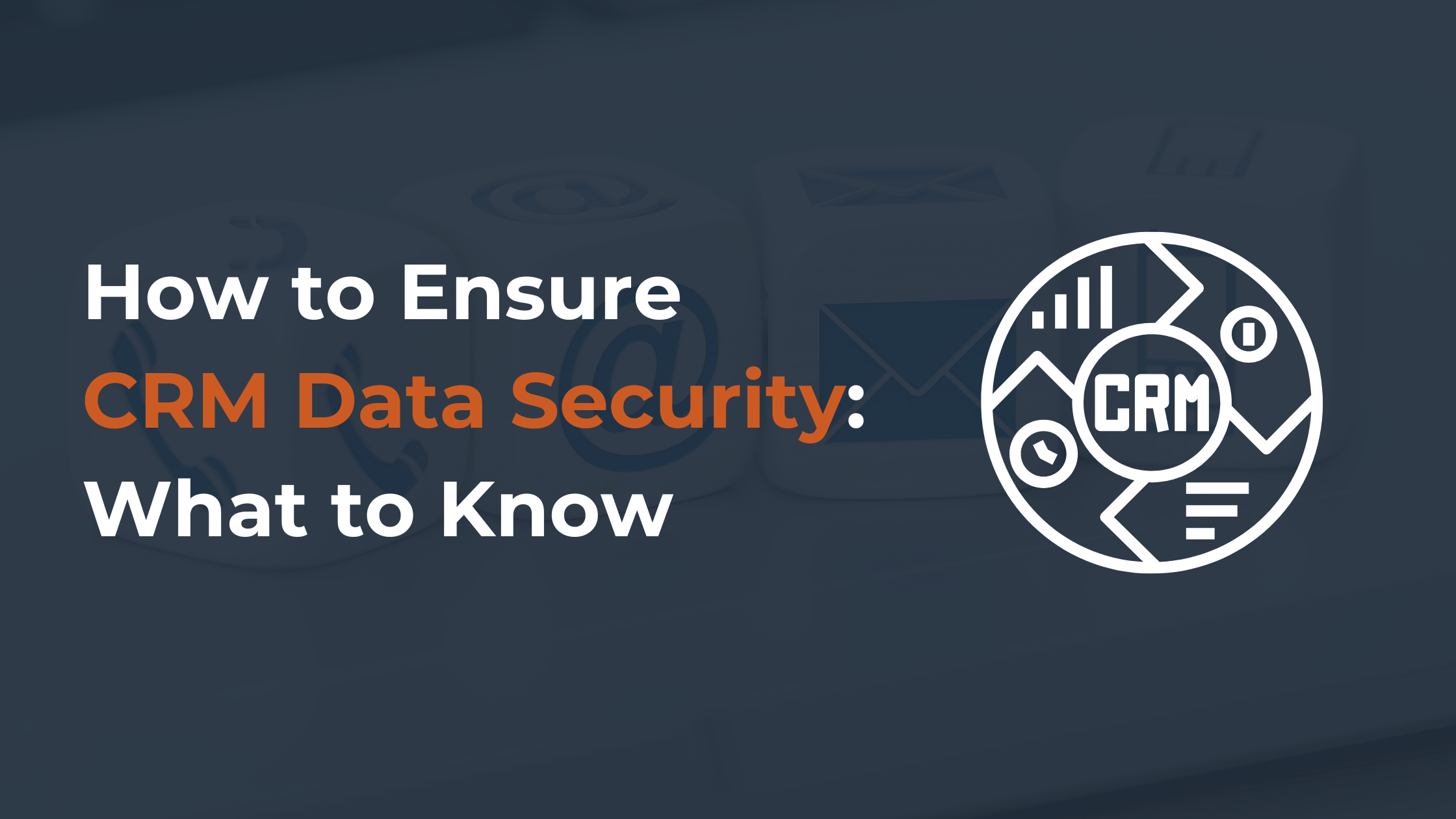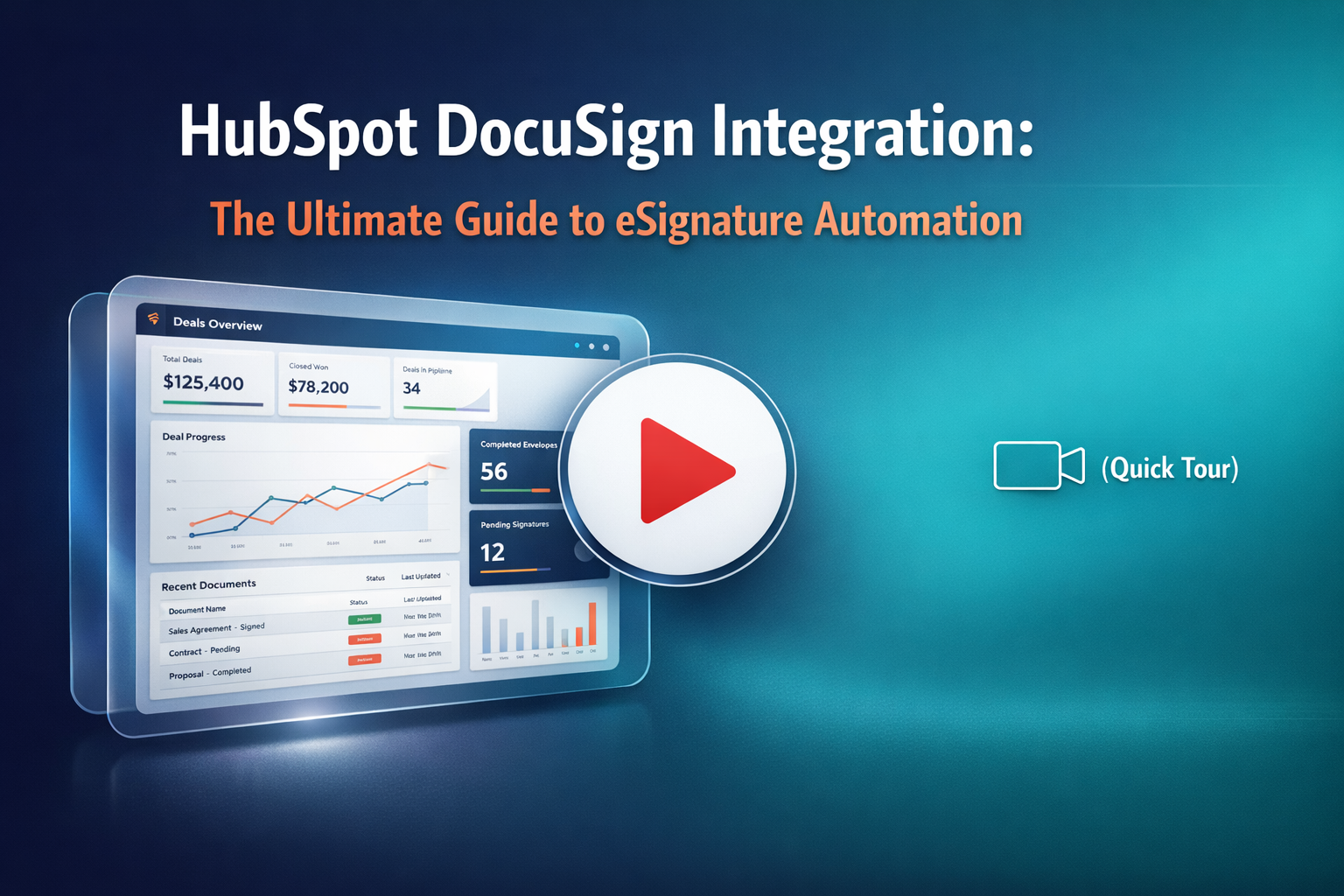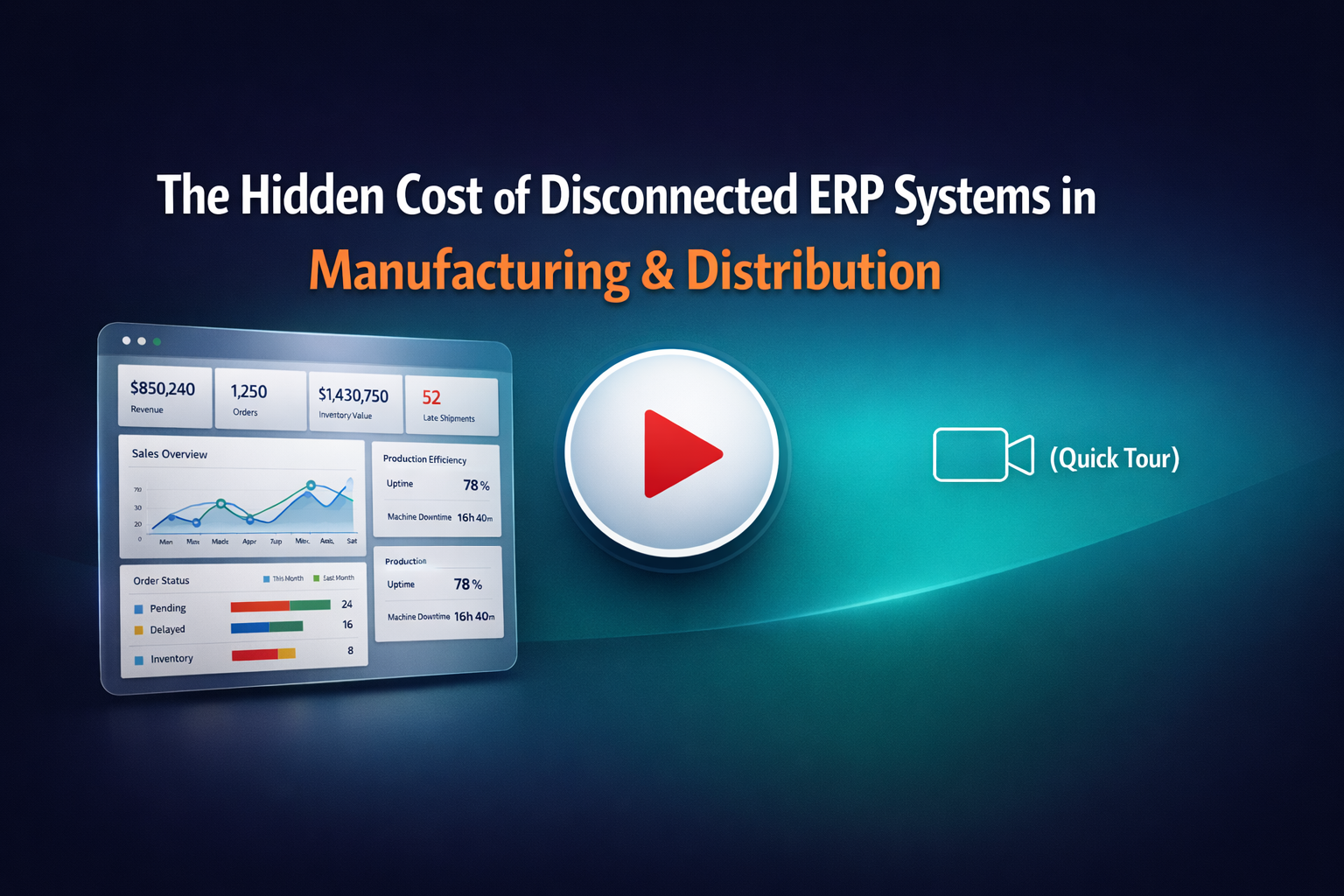Table of Content
- What is CRM Security?
- Protecting Your CRM Data: Essential Steps
- Key CRM Data Security Risks You Should Know About
- Important Regulations for CRM Data Gathering
- How SyncMatters Helps Protect Your CRM Data
What is CRM Security?

CRM data security includes the strategies and safeguards designed to maintain the confidentiality, integrity, and accessibility of information within a CRM system. A CRM must be well-protected as the central platform for managing customer relationships, storing critical data, and streamlining operations.
Implementing robust security practices is essential for protecting sensitive information, such as customer contact details, transaction records, and personal preferences, from cyber threats and unauthorized access. Effective CRM security ensures that only approved personnel can view or interact with this vital data, reducing the risk of breaches, internal misuse, or external attacks.
Data Privacy vs. Data Security
While often used interchangeably, data privacy and data security are two distinct but equally critical components of CRM data protection.
Data privacy focuses on how data is collected, used, shared, and governed. In the context of a CRM, it means ensuring that customer data, such as names, email addresses, transaction histories, and preferences, is collected, stored, and shared in compliance with privacy regulations like GDPR, CCPA, or HIPAA. It’s about respecting customer consent, setting clear data use policies, and giving users control over how their information is handled.
Data security, on the other hand, is concerned with how that information is protected from unauthorized access, corruption, or theft. It involves implementing technical safeguards like encryption, access controls, firewalls, and regular vulnerability assessments to protect CRM systems from breaches and cyberattacks.
|
Aspect |
Data Privacy |
Data Security |
|
Focus |
Proper data collection, utilization, sharing, and governance. |
How data is protected from unauthorized access, loss, or corruption |
|
Goal |
Ensure responsible data usage and compliance with privacy laws |
Prevent data breaches, theft, or tampering |
|
Key Practices |
Consent forms, data minimization practices, user access logs, privacy policies, regulatory compliance (GDPR, CCPA, HIPAA) |
Encryption, access controls, firewalls, MFA, security audits |
How Important is CRM Protection?
CRM protection isn’t just a technical necessity — it’s a business imperative. Without proper protection, the CRM system becomes a high-value target for cybercriminals and a potential point of vulnerability for the entire company.
The consequences of poor CRM data security can be severe:
- Data breaches can expose sensitive customer information, leading to loss of trust and legal liabilities.
- Operational disruption can result from compromised systems, affecting sales, marketing, and customer support.
- Regulatory non-compliance may incur heavy fines if customer data isn’t adequately protected according to privacy laws.
- Reputational damage from a publicized breach can take years to recover from — and some businesses never do.
In contrast, a well-protected CRM fosters customer trust, ensures smooth operations, and enables businesses to scale confidently. It clearly conveys that your organization values data integrity and takes customer privacy seriously.
In an era where data is a core business asset, CRM protection is not optional — it’s essential.
Protecting Your CRM Data: Essential Steps
Here are the critical steps every organization should take to protect their CRM systems from internal risks and external threats:
1. Implement Role-Based Access Controls (RBAC)
Every team member doesn’t need access to all CRM data. Role-based access control allows you to define user roles with specific permissions based on responsibilities. For example, a sales rep might only need access to leads and deals, while a marketing team member may need access to campaign performance data. By restricting access to only what's necessary, you reduce the attack surface and mitigate risks from accidental misuse or insider threats.
2. Use Strong Authentication Methods
One of the most popular ways for hackers to get in is through weak or reused passwords. Encourage staff members to create complicated passwords with a variety of characters and to change them on a frequent basis. For added security, combine this with multi-factor authentication (MFA), which can be a code texted to a smartphone or biometric authentication. Multi-factor authentication can stop unauthorized access even if a password is compromised.
3. Encrypt Data in Transit and at Rest
Encryption is a critical security measure that ensures your data is unreadable to unauthorized parties. Data in transit (such as when it’s moving between systems or devices) should be protected with secure protocols like HTTPS and TLS. Data at rest (stored in databases or backups) should also be encrypted using advanced encryption standards (AES). This ensures that even if your CRM data is intercepted or stolen, it can’t be deciphered without the correct encryption key.
4. Regularly Back Up Your CRM Data
Having a good backup plan is your insurance against losing data. Establish regular, automated backups of your CRM data and make sure they are safely kept, preferably offsite or in the cloud, away from your main system. Regularly test your backup restoration procedure to ensure that, in the event of a system failure, ransomware attack, or unintentional loss, you can promptly restore data.
5. Keep Your CRM Software Updated
Software vendors regularly release updates that include bug fixes, security patches, and new features. Delaying these updates leaves your system vulnerable to exploits that attackers are well aware of. Whether you're using a cloud-based CRM or an on-premise solution, establish a clear update and patch management process to stay protected against the latest threats.
6. Train Employees on Data Security Practices
Your CRM is only as secure as its least-informed user. Conduct ongoing security training that covers topics like how to spot phishing emails, create strong passwords, use CRM tools responsibly, and report suspicious activity. Make data protection a shared responsibility and part of your workplace culture, not just an IT issue.
7. Conduct Regular Security Audits
Security audits help you uncover blind spots and vulnerabilities in your CRM setup. These can include permission reviews, system configuration checks, third-party integration analysis, and penetration testing. Whether done internally or through a trusted external provider, regular audits give you the insight needed to close security gaps before they’re exploited.
8. Monitor for Suspicious Activity
Real-time monitoring tools can help detect unusual behavior, such as mass data exports, repeated failed login attempts, or access outside business hours. Integrate your CRM with a Security Information and Event Management (SIEM) system or use built-in analytics to receive alerts and take action swiftly when anomalies are detected.
9. Establish a Data Retention Policy
Holding outdated or unnecessary data increases risk and may violate privacy laws. Define clear policies for how long you retain CRM records, when they should be archived, and when they must be securely deleted. Align these policies with industry regulations (like GDPR or CCPA) to avoid legal complications and reduce storage costs.
10. Verify Third-Party Integrations
Third-party apps can expand your CRM’s capabilities but also introduce security risks. Stick to trusted vendors with strong security standards, and review each app’s permissions before connecting—it’s common for tools to request more access than needed. Regularly audit integrations to remove those no longer in use. Before installing, ask vendors about their data handling and privacy practices to ensure compliance and minimize vulnerabilities.
Key CRM Data Security Risks You Should Know About

Customer data in your CRM system, including demographic information, purchase history, communication preferences, sales statistics, and communication logs, is vulnerable to a variety of risks and security problems, compromising its integrity, availability, and confidentiality. CRM privacy concerns and threats can have serious consequences for your firm.
To safeguard your contact information and decrease possible risks, you must identify and handle these threats, as well as data privacy problems. Below are the most critical CRM data security risks:
Unauthorized Access
Unauthorized access occurs when individuals gain access to CRM data they shouldn't be able to see—whether through stolen credentials, overly broad user permissions, or failure to revoke access when employees change roles or leave the company. This can result in data being exposed, altered, or deleted without detection. Without granular access controls and a user authentication system, it becomes nearly impossible to manage who sees what, putting your CRM data (and customer trust) at risk.
Phishing and Social Engineering
No firewall or antivirus can protect your CRM from a well-crafted phishing email that tricks an employee into revealing login credentials. Attackers use fake emails, cloned websites, and urgent messaging to manipulate users into handing over personal information. Once inside, they can access the CRM undetected. These tactics rely on human error, making regular staff training and simulated phishing exercises just as necessary as your technical defenses.
Data Loss from Human Error
Even the most trusted employees can make costly mistakes, such as accidentally deleting records, overwriting fields, or exporting data to unsecured locations. Without real-time backups and role-based restrictions, such errors can lead to permanent data loss or unintentional exposure.
Insider Threats
Threats don’t always come from outside the organization. Disgruntled employees, contractors, or even well-intentioned staff with too much access can intentionally or accidentally compromise CRM data. They might export client lists, alter deals, or share confidential information with competitors. Access controls, audit logs, and user activity tracking are all necessary for your CRM to detect insider threats before the damage is done.
Inadequate Data Encryption
If your CRM doesn’t encrypt data both in transit and at rest, it’s vulnerable to interception. Hackers could use tools to sniff network traffic or steal unencrypted backups to gain access to sensitive customer information. Proper encryption renders the data useless to unauthorized users, even if it’s stolen.
Important Regulations for CRM Data Gathering
Whether you’re managing customer data locally or internationally, understanding and adhering to relevant regulations is crucial for maintaining trust and staying compliant.
General Data Protection Regulation (GDPR)
The GDPR is a comprehensive data privacy law that governs the handling of personal data for individuals within the European Union (EU). It grants EU residents broad rights, including the ability to access, correct, delete, or transfer their personal data. Any organization that offers products or services to EU citizens—or collects their data—is legally required to comply with GDPR, regardless of where the business is based. Non-compliance can result in penalties reaching up to €20 million or 4% of annual global turnover, whichever is higher.
California Consumer Privacy Act (CCPA)
Businesses operating in California that meet specific requirements, such as making over $25 million annually, processing the data of over 100,000 customers, or making at least 50% of their revenue from the sale of personal information, are subject to the CCPA. It gives Californians the right to discover what information is gathered on them, ask for its removal, and choose not to have their data sold. Businesses risk fines and enforcement actions from the California Attorney General if they fail to comply with consumer demands and provide clear disclosures about their data practices.
Health Insurance Portability and Accountability Act (HIPAA)
A U.S. law known as HIPAA establishes nationwide guidelines for safeguarding personal health information (PHI). It covers all third-party service providers that handle patient data, including insurers and healthcare providers. HIPAA-covered organizations must have strong administrative, technical, and physical measures in place to guarantee the integrity and confidentiality of sensitive medical data. Penalties for violations can range from civil to criminal, depending on the seriousness and purpose.
How SyncMatters Helps Protect Your CRM Data

At SyncMatters, we understand that your CRM is more than just a database — it's the center of your customer relationships, sales pipeline, and business strategy. That’s why data security isn’t just a feature of our platform — it’s a core principle. We’ve built SyncMatters to help organizations like yours move, sync, and manage CRM data safely, compliantly, and with complete control.
Here's how we protect your most valuable information:
- As an ISO 27001-certified and GDPR-compliant solution, we prioritize data security and regulatory compliance.
- Using industry-standard protocols, all data is encrypted both in transit and at rest.
- You can limit data access to only authorized users with customizable permissions.
- Use third-party tools securely because data can only be accessed by authorized apps with restricted access.
- Get alerts for suspicious activity or sync errors before they become serious issues.
Your data is your business — we make sure it stays protected every step of the way.




